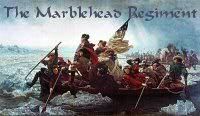"Europe - the obligations of liberty"
Lady Thatcher's words still ring true today. Here are some very important portions:
Liberty and tyranny; democracy and absolutism; the tension between rights and obligations, between discipline and licence; these have been constant themes of political debate in Britain since Parliament first challenged the absolute powers of the King. For centuries we British, secure in Shakespeare's "Fortress built by nature for herself", developed our free institutions undisturbed by invasion and but rarely by revolution. Two World Wars ended that splendid isolation. We learned then the meaning of the words of Edmund Burke, among the greatest of British statesmen and orators: "When bad men combine, the good must associate; else they will fall, one by one, an unpitied sacrifice in a contemptible struggle.
Since 1945 the British and their European neighbours have in truth associated. With the Americans and Canadians they came into an Alliance intended to preserve European liberties against an outside threat. And with one another they have built, through the European Community, a framework for prosperity and for the development of new political links. These two institutions find no parallel in history. Their creation demonstrates at once the continued vitality of the European peoples and their devotion to liberty.
----
Modern liberty rests upon three pillars. They are representative democracy; economic freedom; and the rule of law. The foundation for all three is the acceptance by the members of our societies of a sense of common obligation.
Representative democracy goes far to solve the difficult problem of combining the liberties of the subject with the necessary authority of the modern state. If a democratic government does badly, the people can change it. If a democratic leader proves inadequate, he or she can be replaced without bloodshed. If individuals wish to associate peacefully for a common purpose, they may do so. Our democracies have proved themselves able to adapt to change—the immense changes of the twentieth century. They have adapted to universal suffrage, to the technological revolution in communications, to the most dramatic upsurge of prosperity in their history. Real freedom in our countries has everywhere increased—freedom from ancient prejudices and the freedom which comes from ensuring that much tedious or arduous work is today performed by machines and not men.
Dictatorships have succeeded in doing few if any of these things. Democracy may be less than perfect but, as Churchill forcibly pointed out, all the other systems so far devised by man are much worse.
---
But in the long run, the ideas we offer are more important than the aid we give. The end of empire at first led the newly independent countries to look beyond the West for their ideas. It is not surprising that the Russians seized the opportunity to lay responsibility for all the problems of the poorer nations at the door of those whom they call "Western imperialists". Nor is it surprising, given humanity's propensity to blame their woes on others, that Soviet propaganda has met with success. But whatever the short-term temptation, the true interests of the poorer nations do not lie in a close association with the Soviet Union. It is for us to demonstrate this by word and by deed. There can be no non-alignment in the struggle between liberty and tyranny.
---
In the words, once again, of Edmund Burke: "Abstract liberty, like other mere abstractions, is not to be found". It is not enough to rest on the principles which I have outlined. Political leaders, and the citizens of our democracies, have the duty to act. Great civilisations are not like human lives. No term is set to them. The preservation of liberty is possible. But it is not assured without deliberate and sustained human effort at every level. In a democracy, people must act as individuals. But they must also act together, within the nation and in the associations of nations to which they have chosen to belong.
---
But in a democracy responsibility falls on the people themselves as heavily as on their leaders. The preservation of liberty depends not only on institutions, not only on the skill, determination and vision of statesmen. It also depends on the willingness of individuals to exert themselves, to risk their fortunes, and to give up time and money for their ideals. "Whatsoever thy hand findeth to do, do it with all thy might", said the author of Ecclesiastes. That injunction is as compelling today as ever in the past.
---
These, then, are some of the challenges and opportunities which face Europe. But in the final analysis it is the purposes, not the details, which matter. The Community is not solely—or even primarily—an affair of budgets and butter mountains; of tachographs and wine lakes. It far transcends these matters. It is a noble concept embodying the ideals of liberty and destined to give new strength to that ideal.[fo 20]
Our opponents may delude themselves that disagreements within the Community or the Alliance signifies the beginning of that Western decline which their ideology has predicted so long and so inaccurately. Our friends may despair—I sometimes do myself—at the daily bickering over small matters; at our inability to raise our eyes from the trivial to the great issues; at our apparent failure to take new and dramatic decisions.
These fears are misplaced. The Community has immense achievements behind it. I suspect that this is more obvious to those outside the Community than to those within. The rest of the world takes the Community ever more seriously as an example of successful collaboration between sovereign states for their mutual benefit.
The Community, like an oak tree, will continue to develop imperceptibly but inexorably. We cannot precisely foresee its shape as it grows and adapts to changing circumstances. We know only that its maturing will take generations rather than years or decades.
As it develops the Community must continue to reflect the interests and the aspirations of the democratic nation states which make it up. In its sense of common purpose lies its strength; in its variety its richness. Above all the Community must remain true to the principles and to the obligations of liberty. Should the Community, or any of its members, prove false to those ideals, its existence would be in peril.
But let us be confident. The determination, the common humanity, the toleration and the good sense that we share have brought Europe through many difficult times. They will not fail us now.
 I Remember
I Remember
















































<< Home